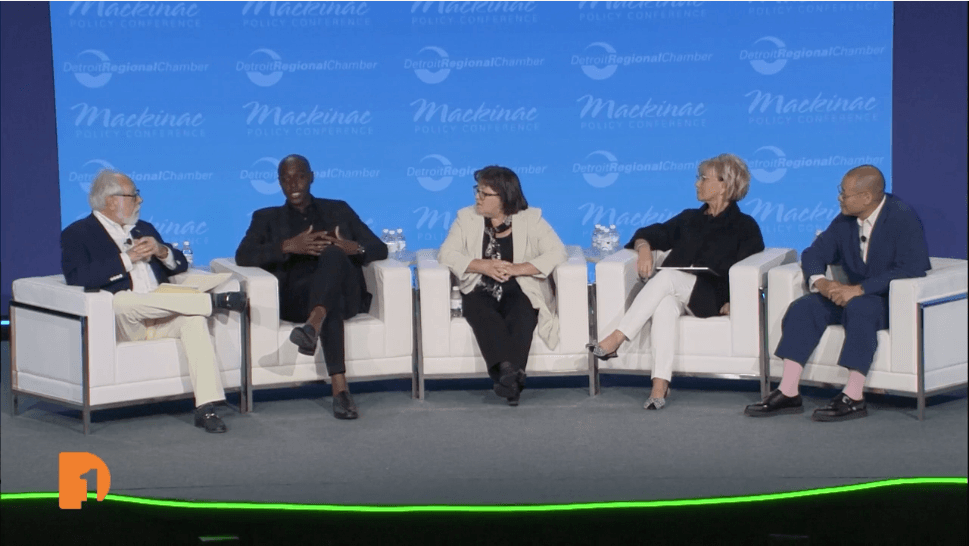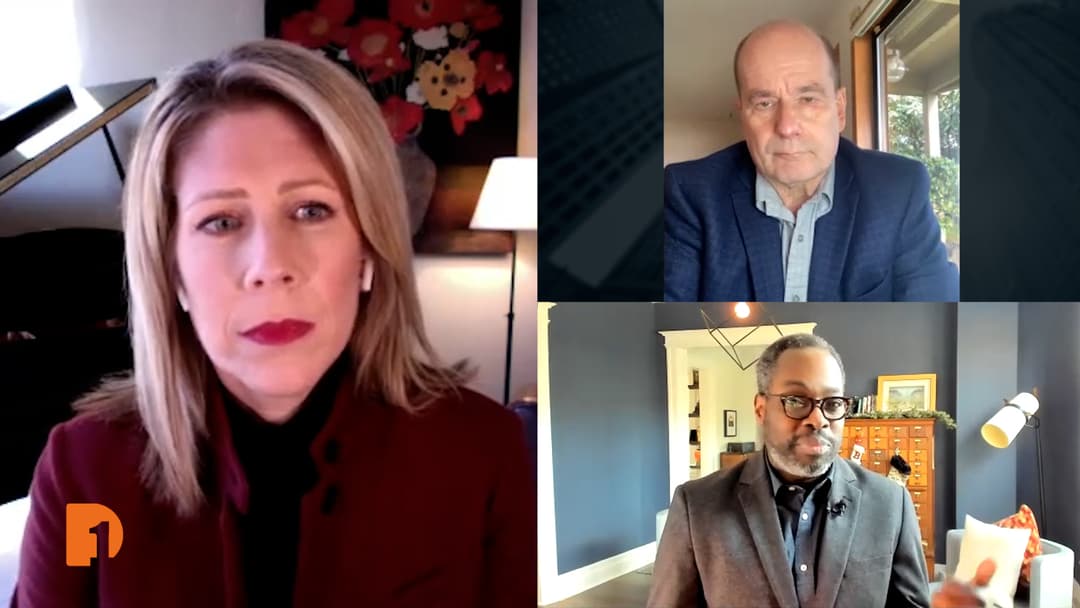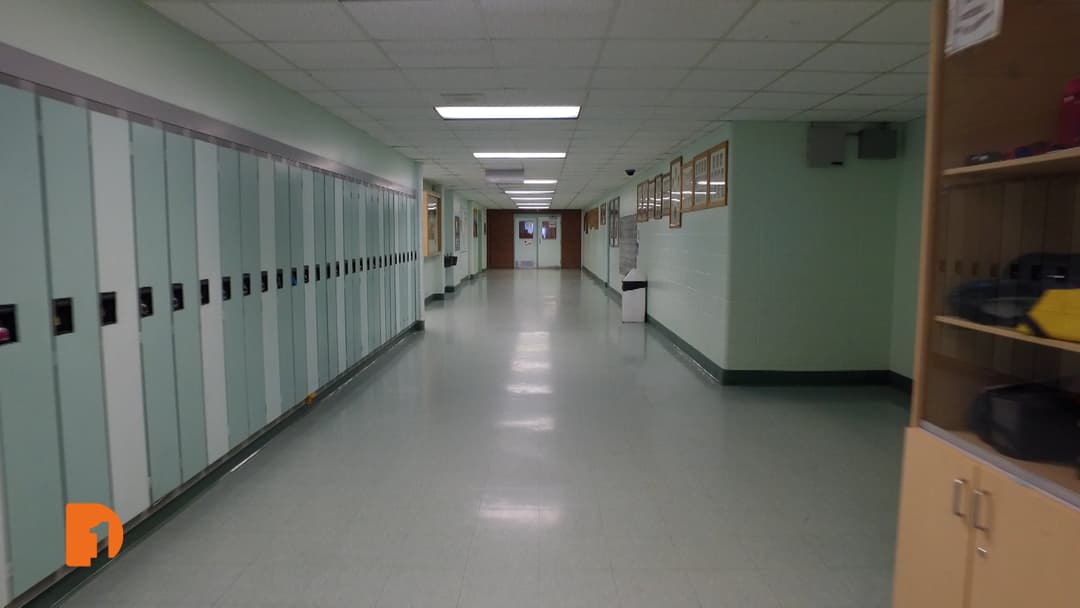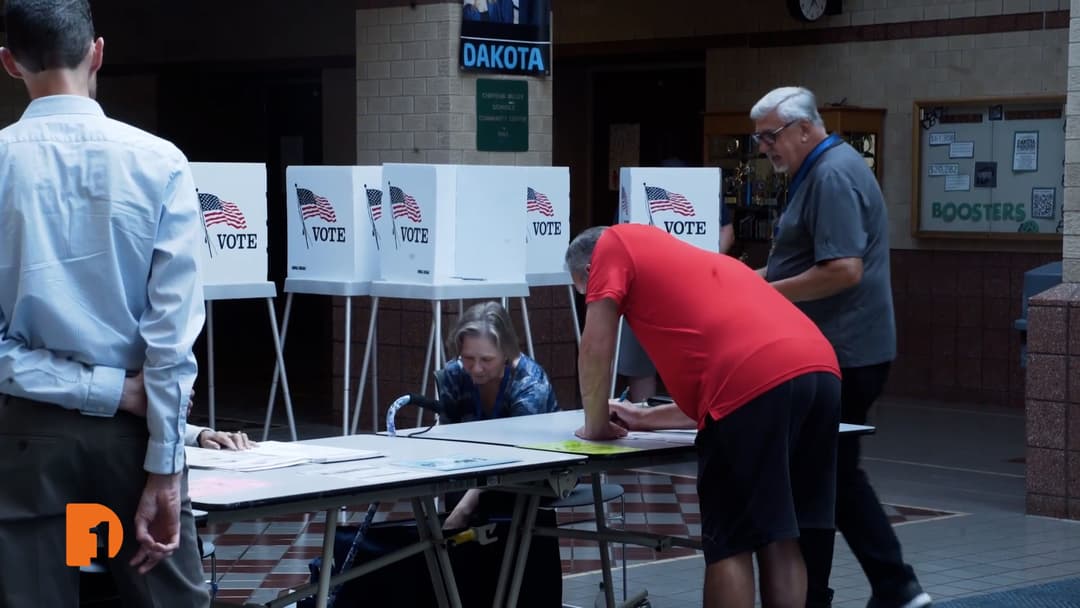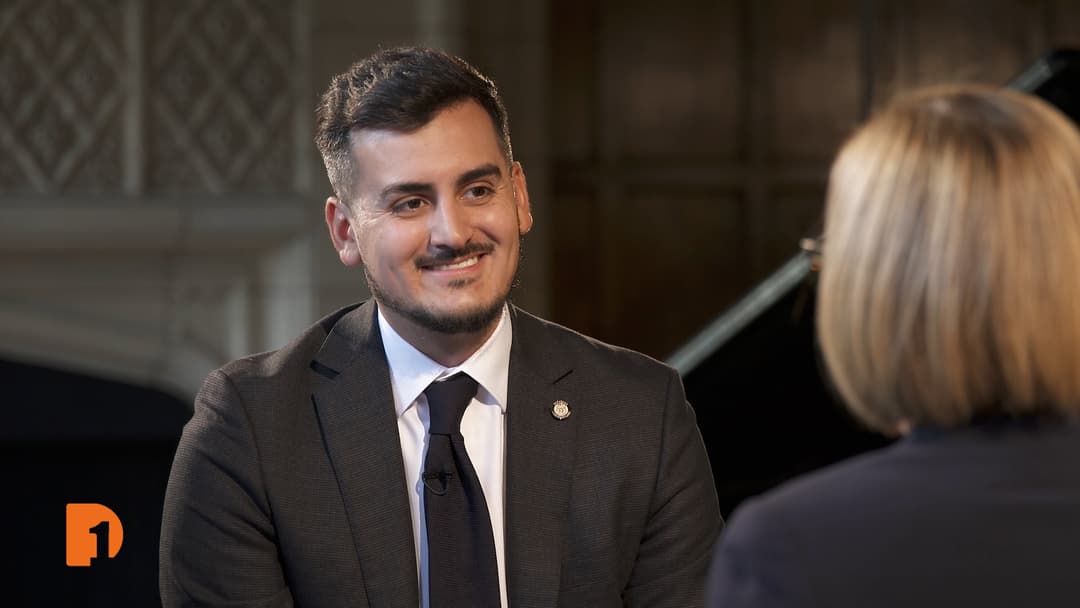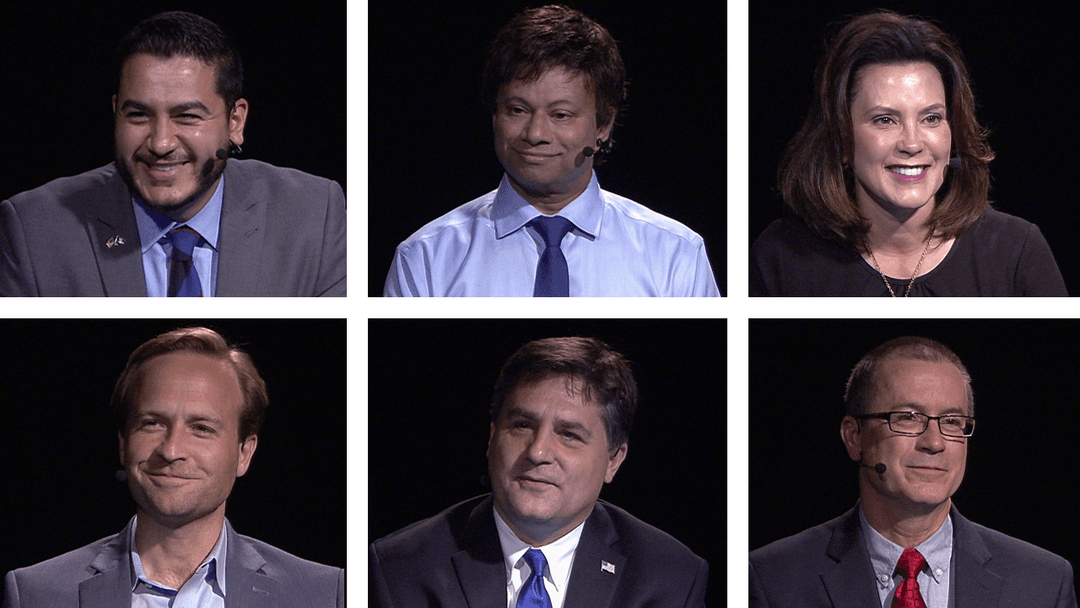
Where candidates stand on funding Mich schools?
Aug 3, 2018
When it comes to education, many can agree that Michigan schools have a lot of ground to make up. In April, Bridge Magazine reported that , according to the National Assessment for Educational Progress, Michigan ranks in the bottom 3rd nationwide.
Erin Einhorn, Bureau Chief at Chalkbeat Detroit, and Sascha Raiyn, education reporter at WDET, asked gubernatorial candidates: Do schools in Michigan have the resources they need to succeed and to serve all students, including those with special needs? Are schools funded equitably? Check out the answers below.
Gretchen Whitmer (D):
Sascha Raiyn: Several of our listeners have questions about education and Judith wanted to ask specifically about what your plans are for schools. Do you believe that schools in Michigan have what they need to succeed and to serve all students including special needs students? And do you think that schools are funded equitably
Gretchen Whitmer: No and no. That’s a simple and quick answer. Here’s what I know. People from around the world used to come to our state for opportunity. Right? You could get a good job that paid you well enough you could raise a family on it and retire with dignity in the state. And no matter what community you called home, your kids were going to have a phenomenal public school education. DPS was the finest school system in a state full of great schools.
Right now though because of years of neglect, because of years of underfunding, because of years of attacks on people who go into education, we are now last in the Midwest and we are bottom 10 in our country. Where we used to lead the world. And it’s unconscionable. And it’s not right. We’re all paying a price for schools that aren’t getting our kids to a place where they are going to be set up for success, where we’ve leveled the playing field for every child in the state which is education does and can do when it’s done right.
My mom taught in Lansing. My grandma taught in Waterford. My grandfather was a superintendent of Pontiac Public Schools. I’m a product of our public schools and I’ve got kids in our public schools. We are not doing right by our kids.
So first and foremost, the question was are we doing enough. Unequivocally, no. We’ve got to do better by our children and that means not punishing third graders who aren’t literate. It means wrapping them around with the supports they need so every child is literate. Tripling the number of literacy coaches. Having universal early childhood education so every child coming into kindergarten is ready to learn. And giving our heroes who go into public education the support that they need. We’ve got another crisis looming here in Michigan and that is the fact that fewer and fewer people are going into education in the first place because the ranks of our teachers and para pros and counselors are just absolutely demoralized because of the continuous attacks. We’ve got to treat them with respect. Make sure that there’s not a teacher in the state that has to rely on the state for help to put money or put food on the table by you know signing up for the Bridge card. So we’ve got a lot of things to tackle.
But it also includes a weighted foundation allowance which I think goes to the heart of the part two of the question. You know study after study shows that kids in high poverty districts cost more to educate. And we have to make a greater investment. That means more nurses and social workers, smaller class sizes, literacy coaches. Those wrap around supports that I was talking about. Our historical funding in Michigan, we’ve got wealthy districts and we’ve got high poverty districts. And the high poverty districts, we’re spending less to educate kids that we know we should actually be making a greater investment in. So I don’t want to just move resources from one district to another. I want to make a greater investment in our kids’ schools by stopping the raids on the school aid fund. Just doing that alone, you could get about $700 million annually back into our education system. And having a weighted foundation allowance which will help us make sure we’ve got the supports for kids in the higher poverty districts. Because study after study tells you that that needs to be the case. I don’t think we need to study anymore. I think we’ve got to do right by our kids.
Shri Thanedar (D):
Sascha Raiyn: Judith from our audience had a question about how you’ll handle schools. So, can you tell us whether you feel Michigan schools have what they need – the resources they need – to succeed and to serve all of their students including students with special needs?
And also, do you feel Michigan schools are funded equitably?
Shri Thanedar: Well, first, Sascha, I want to congratulate you and thank you for all the great work you’ve done with Detroit Public Schools and all of your research and your articles. Education was the ladder for my success. I grew up in poverty and I got a Bachelor’s and a Master’s degree in Chemistry and I immigrated to United States to get a PhD in Chemistry back in 1979.
So, I understand the importance of education. And our education today has become a privilege. It’s become so expensive. A lot of that has to do with funding. We need to put more funds in our K12. We need to make our teachers – pay our teachers as the professionals that they are. Provide them enough support staff like counseling, mental health counseling in schools, career counseling. We need to invest in early childhood education.
I have a grandson who is 18 months old and I see how young children learn. And we’re always worried about third grade math and fourth grade reading. But my focus is going to be taking early childhood education to 3-year-olds and 4-year-olds, teach them the math skills, the reading skills that they need, and begin investing our children very early in their life.
Sascha Raiyn: Can I ask where the money would come from that you want to invest?
Shri Thanedar: Good question. So, the current funding model is not working. I want to have the funding based on a need-based. So, students in public schools, the schools that have higher needs because – say, for example, charter schools, when they take students away from our public schools, it leaves behind harder-to-train students. And sometimes, especially Detroit public schools. There are a number of schools that have higher needs. And I want to make sure that the funding is in proportion to that.
Some of my funding would come from a graduated income tax where the rich and the ultra-rich and the corporations would pay their fair share in terms of contributing to our revenue stream. The passage of the recreational marijuana bill, which I support, will generate about $125,000,000. Some of that money should be earmarked for the school fund.
So, I’m proposing an education bank where the money that’s put in there cannot be used to balance the budget or administrative costs but should be earmarked specifically for school funding.
Abdul El-Sayed (D):
Abdul El Sayed: So Sascha, thank you for asking Judith’s question. Judith, thank you for a great question. We have a number of challenges with our public education system. And to answer the three that you asked specifically number one, we spend less per people per year on education than any other state in the Midwest. And I am not trying to be ___. Number two, it’s deeply inequitable. There is about a $780 pay gap per student per year between the highest income and lowest income schools. And that does not even include what’s invested in the buildings themselves. I as a Health Director inspected city schools. I saw things like mice dead in the corner and they had been there for days. They didn’t just die. Gym floors buckling because the amount of mold growing underneath them.
And then when it comes to students with special needs we have fundamentally failed them. We’ve got a plan in terms of how we are going to be able to bring Michigan’s education system forward. It starts with de-DeVossing our public education system. We have watched as Betsy DeVoss and her ilk have moved lockstep through the GOP to defund public education and to create a system of for profit operated charter schools who have fundamentally nipped at the money that people like you and I pay to educate our kids putting that rather into company’s back pockets. So number one, we have to create an off ramp for for profit charter schools. We have to change the way that we authorize charter schools so that there is one authorizer that has to get permanence from local school districts. Every board would have to have both a parent and a teacher on the board. Second, we have to reinvest in public education again.
That means in investing in wrap around services like we did at the health department. Providing every child a free pair of glasses. It means making sure that kids have access to counselors. Right now, the national average students to counselors is 491 to 1. In Michigan it’s 700 to 1. The number of librarians has dropped 63% since I graduated high school back in 2003. We have got to start reinvesting in the people who invest in our kids. That means also investing in our teachers. We have seen a pay cut every year for the past five years. And then when we think about what education means we need to make sure that every student graduating from our public schools is walking both paths an academic path and a career technical education path simultaneously and graduates both understanding their way around a tool and die shop and precalculus.
And then, it’s what we do on the CAPs as well. I’m a father of a, proud father of a seven month old baby girl and I know she’s never going to be the learner she is today. Our capacity to learn in terms of the human drops precipitously over time and we’re missing that crucial 0 to 5 age period. And that’s why we want to invest in a program we are calling My Toddler. And My Toddler will provide every family access to early childhood education from 0 to 5 when they start kindergarten. And then it’s what happens at post graduate. Too many young people are graduating saddled with huge levels of debt. And what we’ve got to do is provide every single child coming from a family earning less than $150,000 a year access to a tuition free and debt free pathway to a two or four public education in Michigan. We are calling that program My Scholars Grant. And the My Scholars Grant would empower young people to be able to pursue their education know that the State has got their back. And we know that if we have their back they’ll have ours.
And the most important thing we can do for our economy, which I’m sure we’ll get to, is make sure that we are winning the competition for our talented young folk. And we’ve got to keep them here in Michigan if we want to thrive into the future.
Jim Hines (R):
Erin Einhorn: We heard from several people in our audience who ask questions about education. Judith specifically wanted to know what your plans are for schools. Do you believe that schools in Michigan have the resources that they need to succeed to serve all students, including those with special needs? And do you think that our schools are funded equitably?
Jim Hines: Well, there’s a lot of questions in that one question.
Erin Einhorn: It is a lot of questions. Sorry about that.
Jim Hines: I think we’re in trouble education-wise in this state. We have way too many kids who can’t read, way too many kids that are not prepared for college. We’ve pushed our kids to college until it’s sickening. And it’s not just counselors and educators that have done that, but it’s been parents thinking that they want the best for their child and so that means go to college. And when they say, “Well, you know, I don’t know what to study,” the parent or the counselor will say, “Well, you’ll figure it out when you’re there.”
That increases the length of time in college. When you’re not prepared, that increases the amount of remedial education that you need. We know 50% of those who start in a college pathway don’t graduate by six years, so it’s an issue. I believe that we need to go back to the basics when it comes to education: reading, writing, arithmetic, and I would add character building. I believe that school choice is important, and local control is important.
I would get rid of common core in this whole scenario that we’re talking about. I believe the we need coaches, reading coaches, in the classroom. We’re in trouble in reading and in math, and I believe that reading coaches would be very helpful so that anybody in this room could go in and sit with a child and read one on one or one on two. That’s not going to be enough, though.
Erin Einhorn: Do the schools have the resources they need and are they funded equitably? That was the question.
Jim Hines: The question of funding–the problem that we have can’t be solved by money. If we look at the last seven years, we’ve had an extra $1.8 billion pumped into education, and our reading scores are worse than they were before. So money is not the solution. Although, in the educational part that we’re talking about, I believe we do need more funding, particularly for training teachers in how kids learn to read and looking at the variety of means that kids learn to read.
I like phonics because I learned with phonics. I’ve done a lot of international work. I’m fluent in a number of languages, and in each of those languages, we use phonics to learn the language. So that’s critically important. Teachers, they need that education, and most teachers do not learn how kids read. So the funding particularly is important.
There are school districts, especially when you look at the upper part of Michigan, that are not funded adequately. There’s a gap, and that gap needs to be narrowed as quickly as possible and as much as possible.
Patrick Colbeck (R):
Patrick Colbeck: Let me address the funding aspect. Yes, I do. I’m going to tell you what, for the folks that think we’re not funded adequately, I’ve actually got a way to go off and approach that problem in a way that gets to my core philosophy on education, that education should not be managed centrally from the federal government or by the state government. It should be focused on the parents, the teachers, and the students.
And what I mean by that is getting rid of this onerous testing that’s happening, statewide testing. When I grew up, we didn’t have something called the MDE. We didn’t have a statewide assessment. We would take the Iowa test, and we would take the California test to get some sort of a national benchmark as to where we were headed, but we didn’t need a statewide assessment. And that’s part of where this micromanagement comes from.
Education, as somebody who served on the Senate Education Policy Committee and also served on the school board for Canton Charter Academy as treasurer, I understand how education works in this state. And essentially, you have a five layer cake in education. You’ve got the standards bone connected to the assessment bone connected to the curriculum bone and then lesson plans and course materials. The bottom three have historically always been in the domain of the local school districts, yet we’ve been trying to take over more and more with the state level and the federal level up at the standards and assessment level, which drives what the curriculum is. I want to knock that off and actually get back to that local control of the teachers and the parents in the classroom.
That’s one of the reasons I’m also a big advocate for school choice. And so if you have all the local options, well, you’ve got to give those students and those parents some option so that if they’re not getting their needs met, maybe they’ve got a special needs student that they want to take somewhere where they’re going to get an IEP that actually is followed through on, maybe they should have the ability to go off and be portable with those funds to go off and get their student the proper education.
That’s why I implemented what I call the Enhanced Michigan Education Savings Program Plan. It’s like an education savings account, and what it does is expands the current provisions of the Michigan Education Savings Program into K-12 services as well as post-graduate services. So if I want to go into skilled trades, if I want to go off and have a professional development change or professional development courses or a career change later on, it incentivizes education as a lifelong endeavor.
And the beautiful thing about these student specific accounts is that it opens the doors for third-party funding of student specific accounts and student specific educational needs. So for example, in Detroit, we’ve got Cornerstore and Cristo Rey schools that are private schools. They don’t benefit from this program at all. But they were used as a model for how this could work for public schools.
They’ll have work-study programs in high school where third-party companies will come up and partner with a student and say in exchange for you working five days a month in my business getting valuable experience, I’ll put in $7000.00 a year towards your education. Now if you were to apply that into the public school realm and open the doors for these partnerships to provide student specific accounts that they could put this funding towards, that opens a door to almost a 50 percent increase in foundation allowance.
The big rub of this, and why I’ve gotten some opposition from the AFT of Michigan was that the parents are the ones that control where that funding goes. It’s not the education bureaucracy. So there are paths to get more funding if you want them, but the key is to put the control back in the hands of the customers of education, which are the parents and students. But bottom line is I want to go to pure local control, and it doesn’t get more local than the parents being in charge of where that money goes. And we definitely need to get the state and the feds out of it.
And I’m a big proponent of eliminating common core standards and have taken some hits for proposing that. But the more you learn about it, the more that drives everything that’s going down at the local level in that five layer cake, and it’s something that we actually lose some of that local control with that standard philosophy.
Brian Calley (R):
Erin Einhorn: You talked about some inequitable distribution of funds as far as special education. The current basic funding structure we have for schools – the $7800 roughly per child that the state sends to each school, whether that be a district school or a charter school – is that basic system and equitable way of funding schools?
Brian Calley: That is the base foundation allowance. There are a lot of additional categorical funding streams for kids that have more intensive needs, or at-risk kids in other programs. Ever since Proposal A, which closed the majority of the gap between schools, there has been still a gap in there for these out of formula districts. What we have been doing throughout the entire administration is increasing the lower funded schools twice as much as the higher funded schools. We have closed that gap about 50%. I believe about half of that gap has been closed now. Keeping on that same formula is important for the future. When you put the different schools on an equal playing field, I think it is the first step. We have been talking about money. Right? Everybody always wants to talk about money.
But if you look at the states that have done really well, I like to look at Tennessee. Tennessee went from way behind to just performance that is much better than most of the rest of the nation. If you look at what they did, one of the components that is very different than what happens here is the way that they support their teachers. I say support the teachers, and everybody thinks money. Right? That is not what I am talking about. That is not what they did. I am sure that they do support their teachers financially, but the big difference was professional development, teacher coaching, teacher training, helping good teachers become great teachers, and great teachers become even greater teachers. Equip teachers with the latest and greatest in research and best practices. Get it into the classroom quicker.
That whole system for making that work is very intentional and robust. That is something that I am really excited about. The difference that it could make here in the school, and a new mission for the Department of Education, today is just mainly a compliance organization. I think it would much better serve schools if it was a collection of best practice, trainers, and professional developers. They had a cadre of trainers in all different specialty areas that can spread across our state and be that type of support network.
More on the Detroit Journalism Cooperative Gubernatorial Candidate Interviews:
This year, Michigan voters will be selecting a new governor, who will be facing important issues that will determine the health and vitality of the state for years to come.
The first step in the electoral process is the state primary on August 7, when the standard bearer for both the Democratic and Republican parties will be determined.
The Detroit Journalism Cooperative invited all major party candidates to the Detroit Public Television studio for individual, hour-long interviews with a panel of its reporters. The candidates received virtually the same questions and were able to respond at length, providing voters with a much more in-depth and contextual understanding of where each stood on the issues of importance to the state than they can glean from conventional coverage.
So please consider their opinions carefully and, most of all, vote!
Every candidate accepted the invitation to be interviewed except for Attorney General Bill Schuette.
Stay Connected
Subscribe to One Detroit’s YouTube Channel and don’t miss One Detroit on Thursdays at 7:30 p.m. and Sundays at 9 a.m. on Detroit PBS, WTVS-Channel 56.
Catch the daily conversations on our website, Facebook, Twitter @OneDetroit_PBS, and Instagram @One.Detroit
Related Posts
Leave a Reply
Your email address will not be published. Required fields are marked*
